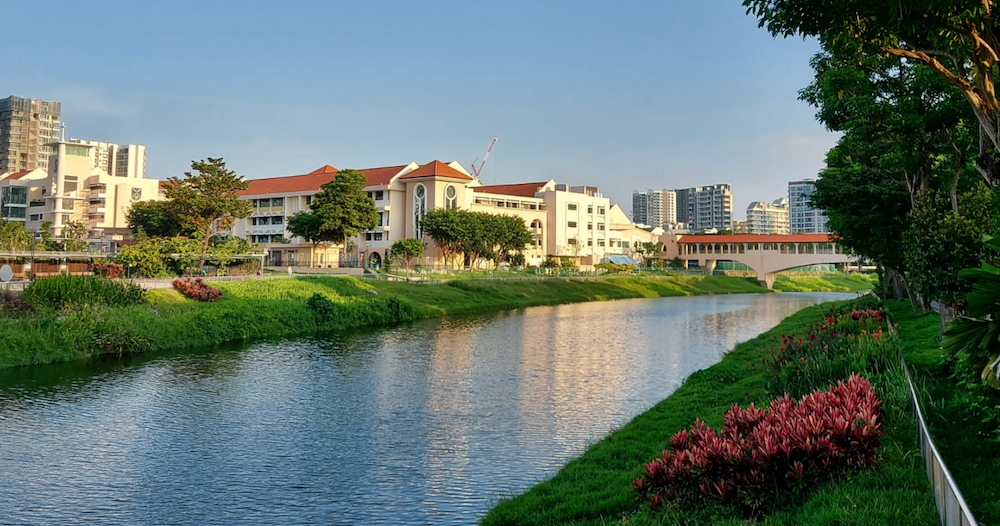Editor's note: An earlier version of the article wrote that Minister Grace Fu defined sustainability as becoming "cleaner, stronger and kinder" which was inaccurate. We've amended the article accordingly to "leaner, stronger and kinder" for accuracy.
Former Minister for Culture, Community and Youth, Grace Fu, is now the new Singapore environment minister.
Focus on sustainability
In her first meeting with the media in her new role, Fu shares the key issues on which the newly-named Ministry of Sustainability & the Environment will focus.
Formerly known as the Ministry of the Environment and Water Resources, Fu said that she intentionally asked for the word "sustainability" to be in the centre of the new name for the ministry, to reflect the importance of sustainability in the national agenda.
Fu added that placing more focus on sustainability also highlights the importance of recognising the impact of climate change, such as drastic changes in rainfall and temperature as well as sea levels.
But what does this jargon exactly mean?
Fu said that, to her, sustainability is about getting Singapore to be "leaner", "stronger", "kinder" as we progress.
How do we achieve sustainability?
In her opening speech, Fu shared 14 "How?"s for which the ministry will have to find the answers, so that Singapore can achieve these goals.
These questions include building capacities to make Singapore more resilient against the impacts of climate change, creating jobs in the sustainability and environmental sectors as well as shaping attitudes and mindsets of people.
1. How can we reduce packaging that we are consuming?
2. How are we able to recycle as much as possible for packaging waste? Whether it's plastic, glass or paper.
3. How do we recycle e-waste better? So that actually we can harness the resources that have been used in producing those electronic groups resource intensive.
4. How do we use less energy, for example, in our industrial buildings? How can we be more energy efficient?
5. How do we build capability, resilience, innovation, and future-ready green economy capability?6. How do we adapt to climate change? How can we make sure that our future generation will be ready when is necessary, with climate adaptation?
7. How do we understand the impact of climate change on sea levels?
8. How do we look at environmental control? What are some of the technologies that allow us to do that? For example, the use of science in the battle against Covid-19 in wastewater testing allows us in a very quick way to sense the level of infection in, say, a dormitory or hospital.
9. How do we increase our understanding of food preparation and hygiene?
10. How do we control food safety better in production [and] distribution?
11. How do we create better jobs when we have greater knowledge in these areas? For example, can we have jobs that require people to understand more about sanitation, vector control, public hygiene, so that these jobs can be better-paid ones?
12. How can we have innovation in policy, not just technology? For example, changing what a reservoir means from just harvesting rainwater to now being sites for solar farms. Another example is the circular economy, which redefines waste as another form of resource that has value and can be useful again.13. How can all of us (individuals, companies, trade associations etc.) play a part in the area of hygiene and sanitation so that Singapore is clean, not because it is cleaned?
14. How can we be kinder to the next generation? For example, using less of our land resources and extending the number of years the landfill at Pulau Semakau can serve us.
Short term and long term plans
In light of Covid-19, Fu said that the pandemic has once again raised the urgency of improving the hygiene and sanitation standards in Singapore.
That will be MSE's focus for the next three to six months, which includes introducing new legislation. However, environmental protection and sustainability will be part of the long term plan for MSE. Fu said:
"The next three months or six months, it's really about getting Singapore cleaner, but not forgetting the longer term goal, about sustainability about environmental protection forward."
Totally unrelated but follow and listen to our podcast here
Top photo via MSE's Facebook
If you like what you read, follow us on Facebook, Instagram, Twitter and Telegram to get the latest updates.
